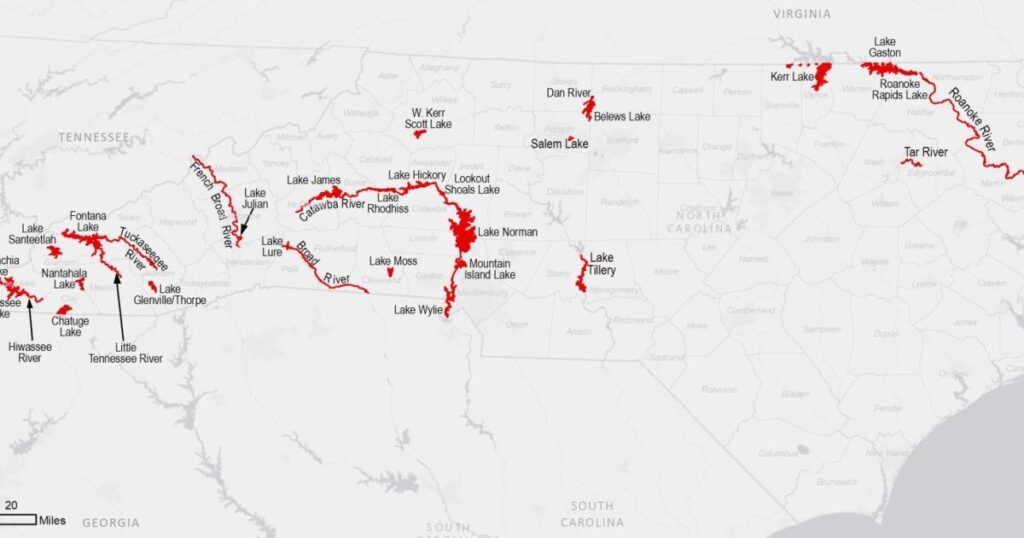Alabama Bass Spread Threatens Native Species in North Carolina
Lake Norman in North Carolina has become the epicenter for a concerning issue involving the invasive Alabama bass. This species poses a threat to the state’s native bass populations and the ecosystems that rely on them for balance.
According to Lawrence Dorsey, regional fisheries supervisor for the N.C. Wildlife Resources Commission, the trouble began over two decades ago. During a routine survey conducted by Duke Energy, the Alabama bass was first detected as part of compliance for the McGuire Nuclear Station. Dorsey noted, “This fish moved downstream into Mountain Island and ultimately into Lake Wylie.”
The Alabama bass has since spread statewide, prompting officials to attempt to measure and control its proliferation. As part of these efforts, state regulators have removed size and creel limits on Alabama and spotted bass to help decrease their numbers.
The invasive nature of the Alabama bass stems from its ability to outcompete native species such as smallmouth and largemouth bass, which is detrimental for both anglers and the ecosystem. Dorsey explained, “Just from a pure angling perspective, the maximum size of an Alabama bass is never going to be as large as the maximum size for a largemouth bass or even a smallmouth bass.”
Smaller than their native counterparts, Alabama bass might not fulfill the same ecological roles, notably those that benefit freshwater mussels. Dorsey emphasized, “We have a lot of freshwater mussel populations in those rivers and streams that rely on specific fish hosts.” Specific bass species are crucial for transporting mussel larvae, similar to how certain butterflies pollinate particular flowers. Smallmouth bass, native to these waterways, play a vital ecological role.
However, the growing Alabama bass populations lead to increased hybridization, where the invasive bass fertilize native fish eggs. Over time, this can result in the smallmouth bass being completely replaced by Alabama bass.
While these bass can naturally spread through free-flowing waters, human actions are believed to drive their introduction to new river basins. Dorsey remarked, “Some of these are probably folks that have good intentions that have done this. You create long-lasting and, in this case, likely permanent changes to the fisheries.”
Although reversing the spread may be impossible, Dorsey hopes the Alabama bass situation will serve as a warning to anglers considering similar actions. It’s worth noting that stocking fish without a permit is illegal.





